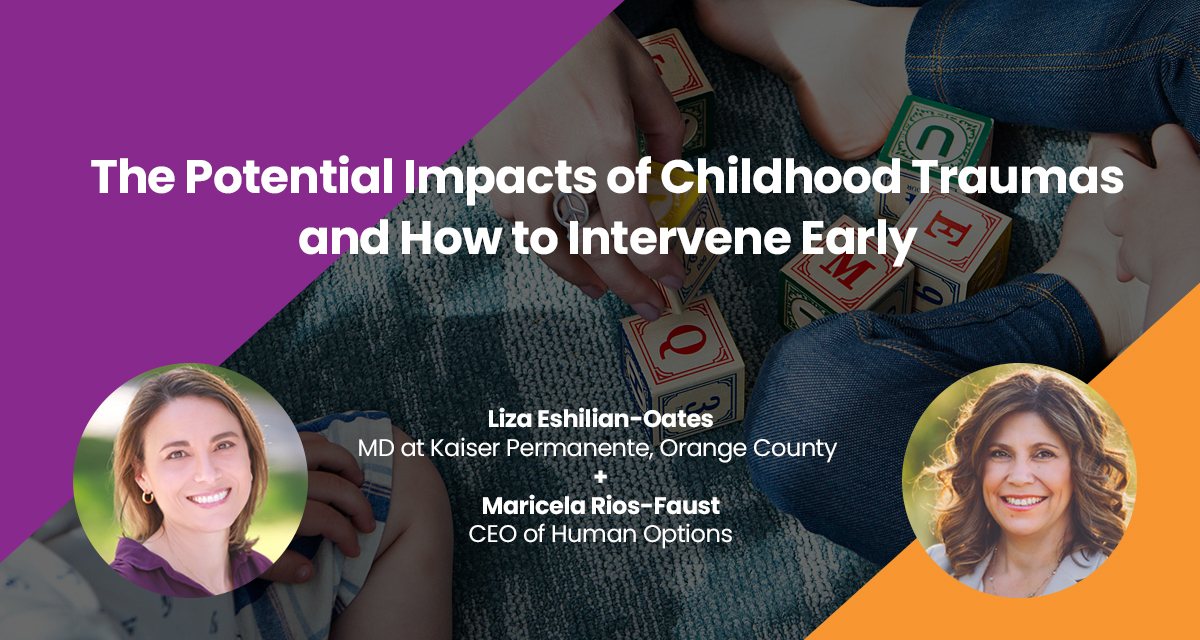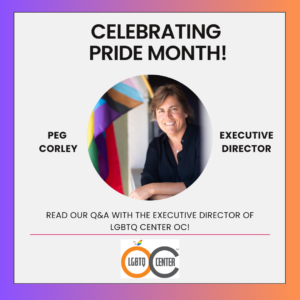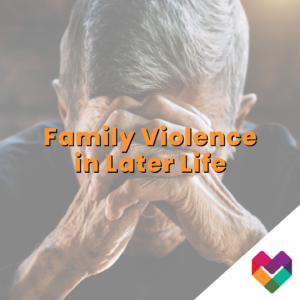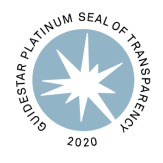By Dr. Liza Eshilian-Oates, MD at Kaiser Permanente, Orange County and Maricela Rios-Faust, CEO of Human Options
April is Child Abuse Prevention Month, and we want to bring focus to Adverse Childhood Experiences (ACEs). Every day, children under the age of 18 endure traumatic events that, if left unaddressed, could impact them for the rest of their lives. Whether it be enduring physical or verbal abuse, witnessing relationship violence, divorce, or growing up in a home with mental health issues, these sorts of ACEs can have long-term repercussions including negative health effects, substance use disorder and more.
Sadly, ACEs are all too common. According to the Centers for Disease Control and Prevention, 61% of adults have had at least one ACE, and 16% have four or more. Although ACEs are common, they are often not discussed during routine medical appointments, and many people are unaware of the impact that ACEs can have on their health.
For instance, toxic stress caused by traumatic events during childhood can negatively impact the development of the brain, immune system, and stress-response systems. In children, this stress may lead to problems with attention, decision-making, and learning capacity. Adults may experience higher rates of a wide range of chronic illnesses including heart disease, diabetes, and asthma. Those who endure a high number of ACEs are also at greater risk of cancer, heart attacks and mental illness.
Thankfully, there are ways to help minimize the negative, long-term impact of ACEs. Although the number of ACEs a person endures (their ACEs score) never changes, they can develop resiliency skills such as confidence, coping and control to combat the physical and emotional effects of these negative childhood experiences.
For over four decades, Human Options has raised awareness about how relationship violence affects not only the individuals experiencing abuse, but the children who witness it. Each year in the United States, about 3.3 million children are exposed to relationship violence in their homes which increases their ACE score and makes them far more susceptible to future health problems. Despite this, the adults involved are often unaware of the impact toxic stress has on their children. Here are three things we can do to help identify and overcome the effects of ACEs:
1. Routine Screenings
Routine screening by healthcare professionals is both imperative and beneficial. These screenings can identify high-risk patients and implement a treatment strategy to help the child and their caregiver connect present or past stressors to current health problems. These types of screenings are becoming more common as the effects of ACEs are being recognized. For instance, Kaiser Permanente is a leader in addressing ACEs and has implemented comprehensive ACEs screenings during their well-child visits. Kaiser Permanente often refers at-risk patients to community organizations like Human Options, which in turn provides services and resources for families dealing with the negative effects of ACEs.
2. Early Intervention
In the same way an injury can often worsen if left unattended, we cannot ignore ACEs and hope the impact just goes away. Addressing the impact of ACEs early on – both within the home as well as with medical professionals – can have lasting long-term benefits. The most loving and helpful way to care for a child who has endured ACEs is to acknowledge the impact, allow them space to process, and consult a professional.
3. Be An Ally
Whether you are a parent, neighbor or friend, we can all intervene to help prevent the damage that ACEs can cause. Anyone who is aware of a child experiencing abuse can provide emotional support as well as connect them to organizations like Human Options to help reduce the damaging effects of ACEs through healing and counseling. If you or someone you know might be experiencing violence, call 877-854-3594, or visit www.humanoptions.org for help.








